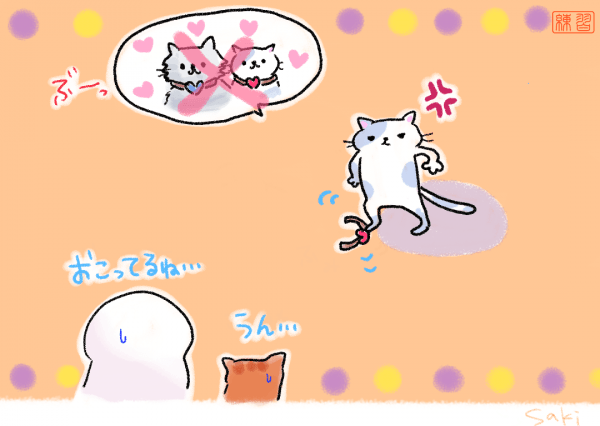I heard that A; it seems like A; it appears that A
- I heard that A; it seems like A; it appears that A
- Just like A; typical of A

昨日、彼と喧嘩したらしいね。
It seems that he got into a fight with him yesterday.
7
キャロルとウィルは別れちゃったらしいよ。
I heard that Carol and Will have split up.
9
彼らは喧嘩をしたらしい。
It seems that they had a fight.
11
彼は病気らしい。
He seems ill.
8
彼は大変眠いらしい。
He seems to be very sleepy.
6
彼は新しいコンピューターを買ったらしい。
I heard that he bought a new computer.
Getting the sentences
Construction
(Elements in parentheses are optional.)
Basic Examples:
あそこに変な人が居るらしい (I hear there are strange people there)
彼は賢いらしい (I hear he's a smart one)
ここではあの猫は有名らしい (That cat seems to be famous here)
あれは本当らしいよ (Well it appears to be true)
Related Expressions
そう
Where this grammar is found
User notes
ライアンでいい
Level: 780
(1 year ago)
It seems like ようだ requires the use of の when used with a noun, while らしい does not.
Similarly, な adjectives need the な for ようだ, but aren't needed when using らしい.
6
Just like A; typical of A
- I heard that A; it seems like A; it appears that A
- Just like A; typical of A
10
男らしいといえば、やっぱりふんどしでしょう!
When you say 'manly', a sumo wrestler's loin cloth comes to mind.
5
がに股で歩かないで。もっと女の子らしくしてよ。
Don't walk bowlegged. Be more feminine.
16
その意見はいかにも彼らしい。
The idea is typical of him.
11
自分のことを考える前に人のことを考えるのはまさに彼女らしい。
It is just like her to think of others before thinking of herself.
Getting the sentences
Construction
(Elements in parentheses are optional.)
Basic Examples:
夏らしい (typical of summer)
Where this grammar is found
User notes
mysticfive
Level: 1599
(14 years ago)
with らしい you can't say something is like something it's not (for example a girl can't be 男らしい); it has to be something that exemplifies what it is.
19
Discussion about this grammar